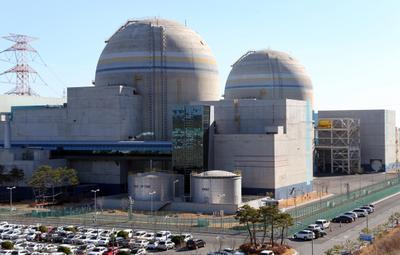The bill will next progress to the Senate — but, it could easily become entangled in unrelated controversies. The US Congress should work to pass the extension as quickly as possible, not only for continued nuclear cooperation but also for the health of US-ROK bilateral relations in a region that is increasingly unstable and important to the US.
South Korea has worked with US agencies and companies to build a domestic nuclear power infrastructure that includes 23 reactors providing 30 per cent of its electrical generation capacity — South Korea is the fifth-largest producer of nuclear energy in the world. South Korea also has plans to build 18 new reactors by 2030, along with waste, fuel fabrication and research facilities. Korean companies are also partnering with American firms to develop nuclear power plants based on US technology in South Korea, China, the US and the UAE, among others. The government has ambitious plans to export nuclear reactors over the next two decades.
Because the current agreement came before the US’ 1978 Atomic Energy Act, it must be renegotiated to conform to higher standards. Yet, despite more than two years, an updated agreement has not been reached. The sticking points are that South Korea seeks consent in advance to enrich uranium and reprocess plutonium from its thousands of tons of spent fuel. South Korea could then reduce its nuclear waste stockpiles, produce new fuel, increase public acceptance for new reactors, and offer potential importers full nuclear fuel cycle services.
There is also a large element of pride involved. In 1988, Japan was given the right to separate plutonium from its spent fuel, as it already had the capability. South Korea argues that just because it did not have this technology 40 years ago shouldn’t mean that it is denied reprocessing capabilities forever, a perceived permanent second-class status.
However, the US wants to assess the results of a recently initiated 10-year joint feasibility study on pyroprocessing; this would push back the date of a renegotiated 123 Agreement to 2021. Pyroprocessing could allow a spent fuel repository to be 100 times smaller, while waste would decay to the radioactivity level of natural uranium after 300 years, as opposed to the current 300,000 years. Yet, US experts have doubts that the technology is proliferation resistant. A Nuclear Technology Transfer Agreement took effect in the US on 25 July, allowing phase two of the joint study to begin further research and development of spent fuel technologies. The ROK government has also constructed a research facility that will process simulated spent fuel in a simulated hot cell.
Furthermore, the US has never granted reprocessing and enrichment consent to countries without previous facilities, as such technology can be used to produce nuclear weapons. Allowing South Korea to potentially have such a capability could lead others, such as Taiwan, to seek the same deal. There would also be a significant increase in tensions with China and North Korea; along with Iran, North Korea could also use South Korea’s reprocessing permission as an excuse to maintain their own programs. As Sharon Squassoni of the Center for Strategic and International Studies (CSIS) has noted, ‘… it is hard to imagine a member of Congress who would support facilitating spent fuel recycling by South Korea if it is seen to make negotiations with North Korea more difficult’.
When the two countries decided to delay renegotiation of the agreement and instead seek a treaty extension, South Korea’s Ministry of Foreign Affairs noted that both governments wanted to give the negotiators more time to sort out ‘the complexity of details and technologies’. CSIS’s Victor Cha echoed this thought and noted that the two year extension ‘doesn’t solve the problem but it does buy time … both sides can now take the negotiations out of the political spotlight’. The South Korean media was not as supportive; according to one editorial, ‘Washington does not seem to trust South Korea as much as it reiterates blood-tight relations … [The extension] is merely a makeshift move to avoid a dispute’.
Not only should Congress pass legislation extending the 123 Agreement for two years and work to negotiate a new agreement, it should do both as quickly as possible to show South Korea the value America places on its 60-year alliance and continuing strong relationship. A July survey found that 78 per cent of South Koreans viewed the US favourably, the highest among the countries polled in Asia. In an increasingly precarious Northeast Asian security environment, reduced popular support for the US in South Korea could affect the success of the United States’ strategic rebalance to Asia and US security overall.
Ashley Hess is a James A. Kelly Korean Studies Fellow at the Pacific Forum Centre for Strategic and International Studies (CSIS), Honolulu.

